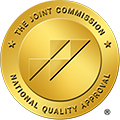You take your morning coffee like clockwork. One day without it, and the headache hits. Is that dependence? Now imagine something stronger—something that doesn’t just cause discomfort when missing but takes over your thoughts, choices, and life. Where’s the line between needing something and being controlled by it? Many people struggle to tell the difference, and that confusion can make it harder to seek help. Understanding this difference is the first step toward regaining control.
It’s easy to feel lost when trying to understand the difference between dependence and addiction. We’re here to help make that clearer. At Georgia Sky Outpatient Detox, we provide support, guidance, and care so you can take the first step toward healing.
Many people develop dependence without realizing it. They might start using a substance for pain relief, relaxation, or better sleep. At first, it seems harmless. But as their body adapts, they need more to feel the same effects. Eventually, they may feel uncomfortable, anxious, or even unwell without it.
Dependence is not the same as addiction. It means the body has become used to a substance, but it does not always lead to loss of control. However, understanding the signs early can help prevent a deeper struggle.
Signs and Symptoms of Dependence
- Increased Tolerance: Over time, the same amount of a substance stops working as well. A person may need to take more to feel the same effect.
- Withdrawal Symptoms: When the substance is missing, the body reacts with discomfort. Symptoms can include headaches, nausea, sweating, shaking, anxiety, and trouble sleeping.
- Using the Substance to Feel Normal: Instead of using the substance for its original purpose, a person starts taking it just to avoid feeling bad.
- Struggling to Cut Back: Even when someone tries to stop or reduce their use, they find it difficult. They may make promises to quit but feel unable to follow through.
- Physical and Emotional Changes: Dependence can cause mood swings, irritability, fatigue, or trouble concentrating. Some people also experience digestive issues or body aches.
Recognizing these signs early is important. Dependence can often be managed safely with the right support and guidance.
What Is Addiction?
Addiction can start in different ways. Some people begin using a substance for fun, stress relief, or medical reasons. At first, it feels like a choice. But as the brain adapts, the substance becomes harder to resist, even when it leads to problems. Addiction is not a lack of willpower—it’s a medical condition that changes how the brain works.
Genetics and environmental influences contribute to 40% to 60% of a person’s risk of developing an addiction. A person’s risk of addiction may be higher if they grow up in a stressful home, experience abuse, or are surrounded by drug use. Teens and individuals with mental health conditions are more likely to develop substance use disorders than others.
Signs and Symptoms of Addiction
- Loss of Control: A person struggles to stop using the substance, even when they try. They may use more than planned or for longer periods.
- Strong Cravings: They experience intense urges to use the substance, even in inappropriate or risky situations.
- Neglecting Responsibilities: Work, school, or family duties suffer because of substance use. A person may miss deadlines, neglect hygiene, or avoid important tasks.
- Continuing Despite Harm: They keep using the substance even when it damages their health, relationships, or finances.
- Withdrawal Symptoms: When they stop using, they may feel anxious, shaky, nauseous, or depressed. Some substances cause severe withdrawal effects.
- Building Tolerance: They need larger amounts to feel the same effects, leading to increased use over time.
- Loss of Interest in Activities: Things they once enjoyed, like hobbies or socializing, no longer seem important. Their focus shifts to the substance.
Addiction is serious, but it is treatable. With the right support, people can regain control and rebuild their lives.
Understanding Substance Use Disorders
In 2013, the American Psychological Association updated how addiction is defined. The terms “substance abuse” and “substance dependence” were replaced with “substance use disorder” to better describe the condition. This change helped avoid confusion, especially around the word “dependence.”
People can develop a substance use disorder in different ways. Some start using it for fun, stress relief, or medical reasons. Over time, the body and brain adapt, leading to dependence or addiction. The difference between dependence and addiction is important to understand. Dependence means the body has adjusted to the substance and needs it to feel normal. Addiction, however, involves a loss of control, where cravings and compulsive use take over.
48.5 million Americans aged 12 and older struggled with substance use disorder. Around 20.4 million American adults faced both a mental health disorder and a substance use disorder at the same time. Many factors contribute to substance use disorders, including genetics, stress, trauma, and environment. With healthy and intentional support, recovery is possible.
Key Differences Between Dependence and Addiction
- Physical vs. Mental Control: Dependence is mostly physical, meaning the body needs the substance to avoid withdrawal. Addiction affects both the body and mind, making stopping difficult despite negative consequences.
- Cravings and Compulsion: People with dependence may not crave a substance, but those with addiction feel strong urges and struggle to resist using.
- Loss of Control: Dependence means needing the substance to feel normal, while addiction takes over choices, causing a person to use despite harm.
- Stopping and Withdrawal: A person with dependence can stop with medical support to manage withdrawal. Addiction makes quitting harder due to intense cravings and emotional distress.
- Impact on Daily Life: Dependence may not disrupt daily life if the substance is used as prescribed. Addiction often damages relationships, work, and overall well-being.
- Risky Behavior: People with dependence may use a substance responsibly. Addiction often leads to dangerous behaviors, such as driving under the influence or using unsafe amounts.
- Reversibility: Dependence can be managed by slowly reducing the substance under medical care. Addiction requires deeper treatment, including therapy and long-term support.
Can You Have Dependence Without Addiction?
For example, people on pain medication after surgery may develop dependence but stop when they no longer need it. They might feel withdrawal symptoms but do not seek the drug compulsively. This is different from addiction, where a person continues using even when it causes harm.
A habit is different from both dependence and addiction. Habits are behaviors that happen automatically, like drinking coffee every morning. They do not cause withdrawal or overpower self-control.
Understanding the difference between dependence and addiction helps people recognize when substance use becomes a problem. Early awareness can lead to better choices and faster recovery.
The Role of Tolerance and Withdrawal
- Needing More Over Time: The body adjusts to a substance, making the usual dose less effective. People may take more to feel the same effects.
- Increased Risk of Misuse: Higher doses increase the risk of dependence, addiction, and harmful side effects.
- Not Always Addiction: Tolerance can develop even with prescribed medications. It does not always mean a person is addicted.
- Can Lead to Stronger Substances: Some people switch to stronger substances when their usual dose no longer works, increasing health risks.
- Unpleasant Symptoms: When a person stops using a substance, they may feel nausea, sweating, shaking, or anxiety.
- Severity Varies: Symptoms depend on the substance, how long it was used, and the person’s overall health.
- Medical Support Helps: Withdrawal can be difficult, but medical care can make the process safer and more comfortable.
- Can Trigger Relapse: Many people return to substance use to avoid withdrawal symptoms, making professional support important for long-term recovery.
Understanding tolerance and withdrawal helps people recognize when substance use is becoming a problem. Early awareness can lead to better choices and support.
Psychological vs. Physical Dependence
Unlike physical dependence, psychological dependence does not cause withdrawal symptoms, but it can be just as powerful. Many people experience both types of dependence, which can make quitting even harder. Understanding the difference between dependence and addiction is key to finding the right help.
How Dependence Can Lead to Addiction?
The main difference between dependence and addiction is that addiction causes loss of control—a person continues using even when it harms their health, relationships, or responsibilities. Recognizing dependence early can help prevent addiction and make recovery easier.
Treatment Options for Dependence and Addiction
Stopping a substance suddenly can be dangerous, especially with alcohol, opioids, or benzodiazepines. Our medical detox program provides safe, supervised care to manage withdrawal symptoms and ensure comfort. Our team monitors each client closely and adjusts treatment as needed.
Addiction affects both the mind and body. We offer individual and group therapy to help clients address emotional triggers, build coping skills, and heal past trauma. Therapy also helps people understand the difference between dependence and addiction and develop healthier behaviors.
Certain medications can help ease withdrawal symptoms, reduce cravings, and prevent relapse. We provide FDA-approved medications as part of a comprehensive treatment plan, combined with therapy and support.
Recovery is not just about quitting the use of substances; it’s about rebuilding a healthy and meaningful life. We offer stress management, lifestyle coaching, and emotional support to help clients rebuild their lives. Our approach treats the whole person, not just the addiction.
Seek Help for Substance Use Disorders with Georgia Sky Outpatient Detox
Words have power, and the way we talk about addiction matters. Negative labels like “addict” or “junkie” can create shame and fear, making it harder for people to seek help. Stigma often prevents people from getting the treatment they need, even when they want to recover. Addiction is not a moral failure or a choice—it is influenced by genetics, environment, and mental health factors.
Understanding the difference between dependence and addiction is key to offering the right support. Many people struggling with substance use fear judgment and rejection. By using compassionate and supportive language, we can encourage more people to seek help.
At Georgia Sky Outpatient Detox, we treat every client with respect, dignity, and care. We believe recovery is possible for everyone, and we are here to help. Take the first step today—reach out to Georgia Sky Outpatient Detox and let us support your journey to recovery.
Understanding tolerance and withdrawal helps people recognize when substance use is becoming a problem. Early awareness can lead to better choices and support.
https://www.washburnhouse.com/addiction-recovery-blog/the-difference-between-dependence-and-addiction/
https://www.addictioncenter.com/addiction/addiction-vs-dependence/
https://uniteus.com/blog/the-difference-between-drug-dependence-and-addiction/#:~:text=Drug%20dependence%20is%20typically%20defined,re%20independent%20of%20each%20other.
https://americanaddictioncenters.org/rehab-guide/addiction-statistics-demographics



